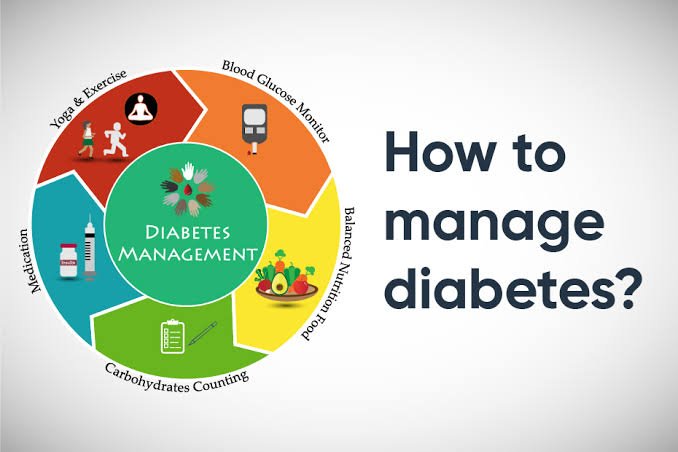Understanding Diabetes: Management Strategies.


Understanding Diabetes: Causes, Symptoms, and Management
Diabetes is a chronic medical condition that affects millions of people worldwide. It occurs when the body is unable to properly regulate blood sugar (glucose) levels, leading to a variety of health complications. In this article, we will explore the causes, symptoms, and management strategies for diabetes.
Types of Diabetes:
There are three main types of diabetes: Type 1, Type 2, and gestational diabetes.
Type 1 Diabetes: This is an autoimmune condition where the immune system attacks and destroys the insulin-producing cells in the pancreas. As a result, individuals with Type 1 diabetes require insulin injections to regulate their blood sugar levels.
Type 2 Diabetes: This is the most common form of diabetes and is often linked to lifestyle factors such as obesity, sedentary behavior, and poor dietary habits. In Type 2 diabetes, the body becomes resistant to insulin, and the pancreas may not produce enough insulin to maintain normal blood sugar levels.
Gestational Diabetes: This type occurs during pregnancy when hormonal changes can lead to insulin resistance. While it usually resolves after childbirth, gestational diabetes increases the risk of Type 2 diabetes for both the mother and child.
Symptoms of Diabetes:
The symptoms of diabetes can vary depending on the type and severity of the condition. Common symptoms include:
Frequent urination
Excessive thirst
Unexplained weight loss
Fatigue
Blurred vision
Slow wound healing
Tingling or numbness in the hands and feet
Causes and Risk Factors:
The causes of diabetes are multifaceted, involving genetics, lifestyle, and environmental factors. Risk factors include:
Genetics: A family history of diabetes increases the risk of developing the condition.
Obesity: Excess body weight, especially around the abdomen, contributes to insulin resistance.
Physical Inactivity: A sedentary lifestyle can increase the risk of Type 2 diabetes.
Unhealthy Diet: A diet high in sugary foods, refined carbohydrates, and unhealthy fats can contribute to diabetes.
Age: The risk of Type 2 diabetes increases with age.
Gestational Factors: Women who experienced gestational diabetes or gave birth to large babies are at higher risk.
Managing Diabetes:
While diabetes is a chronic condition, its impact can be mitigated through proper management:
Medication: Type 1 diabetics require insulin injections. Type 2 diabetes can often be managed with oral medications, and in some cases, insulin may be necessary.
Lifestyle Changes: A healthy diet rich in vegetables, whole grains, lean proteins, and healthy fats can help regulate blood sugar levels. Regular exercise also improves insulin sensitivity.
Blood Sugar Monitoring: Regular monitoring helps individuals understand how their lifestyle choices impact their blood sugar levels.
Stress Management: Stress can affect blood sugar levels, so managing stress through relaxation techniques is crucial.
Regular Check-ups: Regular medical check-ups are important to monitor blood sugar levels and assess overall health.
Conclusion:
Diabetes is a complex and widespread condition that requires a multifaceted approach to management. By understanding its causes, recognizing its symptoms, and adopting a healthy lifestyle, individuals with diabetes can lead fulfilling lives while minimizing the risk of complications. If you suspect you have diabetes or are at risk, consulting a healthcare professional is the first step towards effective management and improved well-being.
